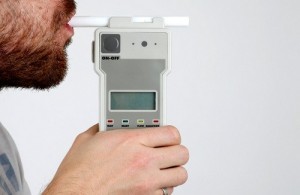On May 14, 2013 the National Transportation Safety Board (NTSB) announced a new recommendation to pursue a national 0.05 blood alcohol concentration (B.A.C.) per se limit. A per se limit is the level of intoxication at which a person is automatically driving illegally, regardless of their actual level of impairment. The NTSB’s recommendation has resulted in debate about whether a lower B.A.C. would solve or create more problems with drinking and driving.
 The lowering of B.A.C. limits started many years ago. In 2000, Congress used the power granted to them by the Tax and Spend Clause to pass the Department of Transportation Appropriations Act, which threatened to cut off transportation funds for states that did not have laws setting its B.A.C. limit at 0.08 by 2004. By 2004, all 50 states had lowered their B.A.C. level from 0.10 to 0.08. Now, the NTSB is presenting reasons to lower B.A.C. levels again.
The lowering of B.A.C. limits started many years ago. In 2000, Congress used the power granted to them by the Tax and Spend Clause to pass the Department of Transportation Appropriations Act, which threatened to cut off transportation funds for states that did not have laws setting its B.A.C. limit at 0.08 by 2004. By 2004, all 50 states had lowered their B.A.C. level from 0.10 to 0.08. Now, the NTSB is presenting reasons to lower B.A.C. levels again.
The NTSB has cited several reasons for this reduction. According to the NTSB, the per se B.A.C. limit should be lowered for the following reasons:
- alcohol impairs critical driving tasks;
- crash risk is consistently and significantly elevated by the time an individual reaches 0.05; and
- lowering the B.A.C. limit has been shown to reduce crashes, injuries, and deaths.
The NTSB adds in its reasoning that the percentage of DUI-related deaths hasn’t dropped in recent years. According to the NTSB, lowering the B.A.C. limit furthers its goal of having no alcohol-related crashes or fatalities on the road.
However, the NTSB recommendation faces much opposition. Mothers Against Drunk Driving (MADD) opposes NTSB’s recommendation, stating, “Even though lowering the standard could reduce fatalities that benefit would be many years in the future. Pursuing lowering the per se limit would distract from current initiatives that are saving even more lives today.” Thus lowering the B.A.C. to 0.05 may not have the effect the NTSB is searching for.
Most importantly, lowering the B.A.C. level will have an effect on anyone who drinks alcohol and decides to drive. Studies have shown a B.A.C. of 0.05 can be reached by an average male after fewer than two alcoholic drinks consumed in an hour and an average female may reach that limit after consuming just one drink in an hour. As a result of the B.A.C. level being so low, the number of drivers affected by a DUI charges would increase.
Now that the NTSB has released its recommendation, Congress and the state legislatures have the option of taking these recommendations into consideration when drafting new laws. The Colorado legislature may decide to draft a house bill lowering the B.A.C. for a per se DUI to 0.05 which, if passed by the legislature, could be signed into law by the governor. If the Colorado legislature decides not to follow the NTSB’s recommendation, Congress might use its power, like it did in 2000, to require every state to lower the B.A.C. level to 0.05 or face a cut to federal transportation funds.
Colorado already punishes drivers for Driving While Ability Impaired (DWAI) at a B.A.C. of 0.05, but a DWAI is a less severe offense than a DUI. But a federal law forcing Colorado, and other states, to apply a 0.05 standard to DUI’s would naturally eliminate the less severe DWAI standard at the 0.05 B.A.C. level.
Historically, Colorado has been slow follow Congress’s national per se law. In 2000, when Congress enacted the Act to reduce the B.A.C. to 0.08, Colorado, along with two other states, were last to abide by the Act. If Congress requires states to lower the B.A.C. per se limit again, Colorado may be the last state to adopt the new per se limit.
A DUI charge could result in jail time, job loss, and a permanent criminal record. Mr. Bussey has challenged DUI/DWAI charges for more than 15 years. If you are faced with criminal charges, an experienced attorney can help you defend yourself in court and protect your legal rights.
The legal team at The Bussey Law Firm, P.C. and dedicated Colorado Springs criminal defense attorney Tim Bussey strive to provide aid each client, no matter what charges they face. For a no-cost consultation, call us today at (719) 475-2555.
